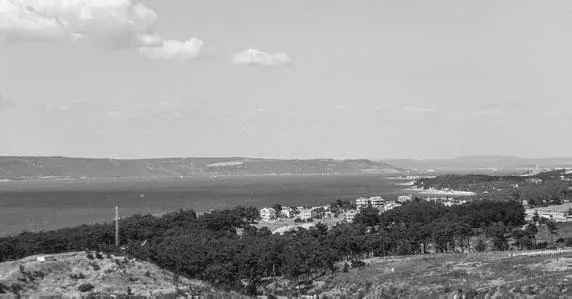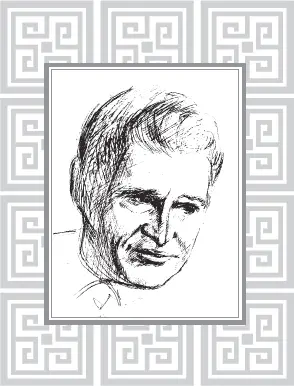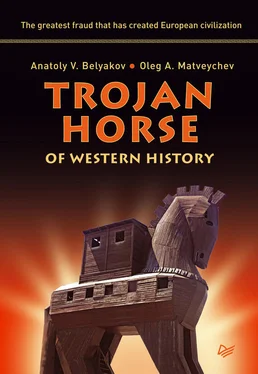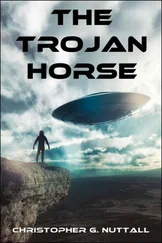These questions were asked especially often since the legend about the Trojan War seemed to have been completely confirmed by finds made by Schliemann, Dörpfeld and Blegen.
Doubts about historicity of the Trojan War revived, when the legend about it seemed to have been completely confirmed by finds made by Schliemann, Dörpfeld and Blegen.
A kind of Renaissance of views of the late 18[[th]] and early 19[[th]] centuries happened, when doubts about the historical reality of both the Trojan War and Troy itself were very popular.
While Ancient thinkers considered Homer to be not only the most skilful poet but also the greatest scientist, and his poems to be a source of the truest historical and geographical information (according to Strabo, “Homer surpassed all people of the ancient and new time, not only due to the high dignity of his poetry, but… knowledge of the conditions of public life” [37] Strabo, Geography , I, 2.
), the science of the Modern Age completely subverted his authority. Not only was the information about the events described in the Iliad and the Odyssey considered to be unreliable, but the very existence of Homer was put into question. Scientists’ skepticism reached the point that for some time believing that there was some considerable culture in Aegis before the 1st millennium B.C. was considered madness. [38] R.V. Gordeziani, Issues of the Homeric Epos (Tbilisi, Tbilisi University Publishing House, 1978); p. 161.
According to their judgments, all these “rich in gold Mycenae”, “blossoming Corinthes” and “magnificently arranged Troy”, inviting envy by their riches even amongst Greeks of the classic era, were only imaginary cities populated with fiction characters – the descendants and relatives of the Olympic gods, such as Agamemnon, Achilles, Diomidius and Priam. At the same time, there have always been scientists, who trusted in Homer’s word and were ready to defend their point of view.
At the turn of the 18[[th]] and 19th centuries the harshest arguments about Homer took place. The ones being in doubt were Englishmen John McLaurin, who published Treatise in evidence that Troy was not captured by the Greeks (1788), and Jacob Bryant, who published Treatise concerning the Trojan War and expedition of the Greeks as it was described by Homer, demonstrating that such expedition had not ever been held, and that such a city of Phrygia hadn’t existed (1796). The latter violently polemized about historicity of Troy with archaeologist Lechevalier, the very person who first located Ilion in the Bunatbashi area. “Cabinet critics heatedly argued about trifles – location of the Greek ships and even the probable number of children born by camp whores”. [39] Michael Wood, In Search of the Trojan War (Plume, 1987).
At the very height of the scholarly battles, the great romantic Byron visited the plane at the Hellespont coast. The atmosphere of these places made him believe that Homer’s poems were true. 11 years later he wrote in his diary, “I stood upon the plain daily, for more than a month, in 1810; and if anything diminished my pleasure, it was that the blackguard Bryant had impugned its veracity (the Trojan war)… I venerated the grand original as the truth of history (in the material facts) and of place. Otherwise, it would have given me no delight. Who will persuade me, when O reclined upon a mighty tomb, that it did not contain a hero? – its very magnitude proved this. Men should not labour over the ignoble and petty dead – and why should not the dead be Homer’s dead?” [40] Lord Byron, Journals , jan. 11, 1821.
Despite such poetic arguments by Byron, the belief that the Trojan War was only the fiction of the blind Homer remained popular among scientists for another half a century until Schliemann’s excavations assured the scientific community of the historical value of great cities described in the Iliad , such as Troy, Mycenae, Tirynthos and Orchomenus. At first sight, some finds of the amateur archaeologist accurately corresponded to the items described by Homer. For instance, the blade of a bronze dagger found in Mycenae depicted the famous tower shield; in the Iliad , such item belonged to Ajax.

Fig. 21.Hellespont in the Canakkale District.
Other items found were the remains of a helmet made of wild boar fangs, depicted in the 10[[th]] rhapsody of the poem, and so on. All these seemed to be sound proof that the Trojan War had been real. And Homer himself already seemed to be at least a younger contemporary of his heroes or even an immediate witness of the events he described. “Data provided by Homer gradually became kind of “a guidebook” for those studying the Aegean culture of the Mycenae epoch”. [41] R.V. Gordeziani, Issues of the Homeric Epos; p. 162.
However, Schliemann’s romantic epoch ended up quite quickly. Already in the late 19[[th]] century, serious studies were performed, demonstrating that the material culture and everyday life of the Homer’s heroes did not correspond to the cultural environment of the Mycenae civilization and should have been associated with a later period. [42] Perhaps the first guess about the difference between time of Homer’s world and the time described in Iliad was made at the beginning of the 18[[th]] century by Giambattista Vico, an Italian philosopher (See Vico, Giambattista. The New Science , III).
Having armed his characters with iron weapons and darts known in the Bronze Age, Homer ignored all typical signs of the Mycenae culture, mentioning neither cobbled roads with bridges, nor water lines and water drains in the palaces, nor the fresco paintings. Even written language that already existed before the 12[[th]] century B.C. and was demonstrated in clay plates found by Arthur Evans at the beginning of the 20[[th]] century during the Knossus excavations on Cyprus, wasn’t mentioned by Homer. Thus, it appeared that when the Iliad and the Odyssey were written, the Mycenae civilization had been already forgotten. Thus, trustworthiness of Homer’s stories were once again put in doubt.
Harvard philologists Milman Parry and Albert Lord, who in late 1920s and early 1930s studied style of Homer’s epic, also fanned the flames in a way. To learn about the technique for creating, learning and transferring of oral legends they undertook several expeditions to the Balkans to study the living epic tradition. Having collected and studied a huge amount of folklore material, they found out that in time epic was based not on telling some finished texts, but rather on transferring a set of resources used to develop a song: plots, canonical images, and stereotyped word-and-rhythm formulas, which singers used like language words. In particular, this allowed performers to reproduce (or, more precisely, to create in the course of the performance) poems consisting of thousands of lines. [43] During his expedition Parry had written down a poem of a Bosnian Avdo Međedović The Wedding of Meho Smailagić that had more than 12,000 lines, that is equal to the volume of the Odyssey. (Albert B. Lord, The Singer of Tales (Cambridge (Mass.): Harvard University Press, 1960)). This was the proof of the possibility of a similar volume of works in the unwritten culture.
Each time the song was an improvisation, though, it remained a form of collective creativity.

Fig. 22.American historian Moses Finley calling on the “deletion” of Homer’s Trojan War from the history of the Greek Bronze Age. (Image © Olga Aranova.)
Читать дальше













